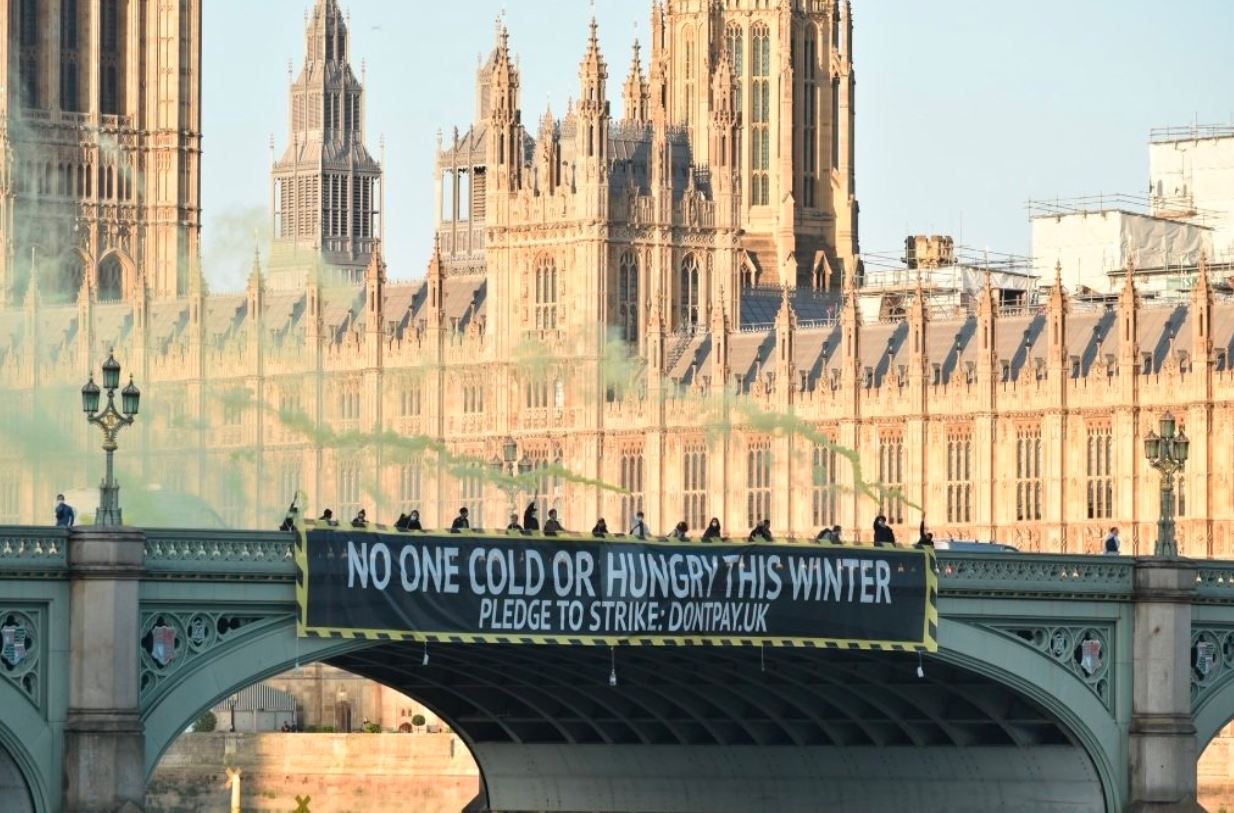UK energy bills will rise from £1,971 to £3,549 in October with Ofgem today confirming the 80% hike. Household bills are forecast to soar even further in 2023 with warnings already made that “people will die” because of the rises.
Energy consultants Cornwall Insight predict the average gas and electricity will increase to £5,386 in January followed by another rise in April to more than £6,600 per year.
It means the average monthly bill for energy will be £551 per month, “not far off an average mortgage”, tweeted Faisal Islam, the BBC’s economic editor.
“Another way at looking at this is next year, the average household will pay more in energy bills than they do in income tax… or alternatively, for that household, on £31k, a £400 per month increase in energy bills is equivalent of increasing basic rate of tax from 20% to 45%,” Islam added.
Dr Craig Lowrey from Cornwall insight said the energy crisis “is showing no signs of abating.” He has called for the outdated price cap “to be reviewed and [for] mechanisms for protecting the most vulnerable, such as social tariffs, to be considered as viable alternatives.”
Lowrey continued: “In the meantime, a key focus for the next Prime Minister and for Ofgem must be protecting consumers, and the wider economy from the impact of this rise. There are several avenues that can be explored including a review and expansion of the current support package of at least £400 per household.”
Energy bills price hike ‘cannot be allowed to go ahead,’ says Sturgeon
Money saving expert Martin Lewis said “more help is desperately needed for the poorest or people will die this winter” because they simply cannot afford the 80% price cap hike to their energy bills.
His comments have been echoed by Scotland’s first minister Nicola Sturgeon who said the rise is “simply unaffordable for millions” and “cannot be allowed to go ahead.”
Sturgeon tweeted: “This rise must be cancelled, with the UK gov and energy companies then agreeing a package to fund the cost of a freeze over a longer period, coupled with fundamental reform of the energy market”.
The government’s package of support – £400 off energy bills for every household; £650 for households on means-tested benefits; £300 for pensioners; £150 for people on disability benefits – has been wiped out by the price rises.
People are already struggling with the cost of living crisis and rampant inflation yet Boris Johnson’s “zombie government” has done nothing more to help with the crisis and his successor – either RIshi Sunak, or more likely Liz Truss – will not be named until September 5.
Truss has pledged “immediate support” but through the leadership campaign the foreign secretary has repeated her dislike for “handouts” and has promised tax cuts to appeal to the Tory members voting for the next prime minister. In a column for the Daily Mail, Truss has promised “decisive action” but restated her pledges to reverse the national insurance rise, cut taxes, scrap the green levies on energy bills and resume fracking.
According to the Times, Truss has discussed suspending VAT on energy bills and boosting payments to vulnerable households with business secretary Kwasi Kwarteng, who is strongly tipped to be her chancellor.
Sunak has warned the Conservative party “will not be forgiven” by the electorate if the government does not intervene to help families pay their energy bills and said refusing to do so would be a “moral failure”.
Nearly two weeks ago Labour proposed freezing the energy price cap at its current £1,971 level.




